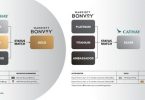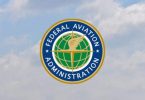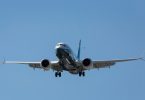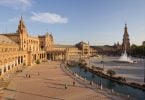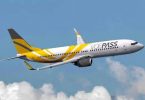Adding yet another voice in opposition, the Pacific Asia Travel Association (PATA) CEO, Martin Craigs, condemned both the EU and the UK for their imposition of taxes and levies that could have a substantial impact on tourism in Asia.
Calling the UK’s Air Passenger Duty (APD) and the EU’s Emission Trading Scheme (ETS) “outrages,” Craigs made a passionate plea for attendees at the 2012 PATA Annual Conference to carry the message that the organization is heartily condemning those agencies or governments which seek to hinder travel.
Time to take a stand against arbitrary policies
He noted that PATA will continue to participate in a series of Hub City Forums, staged in aviation hubs around the world, in an effort to highlight the crucial role played by tourism in economic development and well being, especially in emerging nations where the industry is a critical component of job growth and upward mobility. Together with other stakeholders, the forums are designed to spread awareness of the value added by travel and tourism.
And the consequences of actions that inhibit tourism are huge. Citing statistics that have been generated regarding the Asia/Pacific region, Craigs said that if ETS suppresses demand by just 1 percent, it will wipe out 6.5 million jobs in Asia that are dependent on the sector by 2030.
While recognizing that random development has its own downside, he cautioned that in some cases profit must take second place to responsible resource usage with a long-term perspective. He lauded the decision to have representatives of world tourism finally included at the G20 meetings, an inclusion long overdue since travel/tourism generates 5 percent of global GDP and accounts for 30 percent of the world’s trade.
PATA Annual Conference in Kuala Lumpur
At the conference, PATA’s anniversary gathering, the group pledged to work with other vested partners including the International Air Transport Association (IATA), the Association of Asia Pacific Airlines (AAPA), the Air Transport Action Group (ATAG), and the World Travel and Tourism Council WTTC) to pound home the message that, in Martin’s words, these arbitrary levies are “morally, politically, and financially unacceptable” to the travel/tourism sector.
Asia is particularly susceptible to the effects of increased taxes or any additional cost that curtails demand for air travel. The region is geographically huge and air travel is the only practical mode of transport across its vast distances. Much of the region is still developing and lacking the road and rail infrastructures that provide Europeans and North Americans numerous alternatives to air transport.
Adding support to that assertion is the fact that a recently released report from the GDS giant Amadeus shows that 8 out of the 10 busiest intercity routes are in the PATA region. No route in Europe or the Americas is included on that list with the two also in emerging market – RIO-SAO and JNB-CPT. In addition, most of the national markets with double-digit growth are also in Asia. The region’s dominance is undeniable.
In contrast to limited surface transport options, airports in Asia are among the best on Earth and air travel has become a prime component of the transportation grid. The advent of low-cost carriers, coupled with relaxed regulations, has vastly increased the volume of air travel and the goal of ASEAN 2015 is to create a single aviation market where the free flow of people goods and services can benefit all the region’s residents.
Working towards a single sky
By that 2015 date, IATA’s Regional Vice President, Maunu von Leuders, said that 37 percent of the world’s air traffic would be to, from, and within Asia. There will be a tripling of passengers and a direct contribution to the regional GDP of 6.3 percent.
While the link between a healthy aviation sector and economic growth remains strong across the globe, it has a special role to play in Asia as its diverse and wide-flung nations continue to develop and integrate.
While opposed across most national borders, the APD and ETS pose special threats for Asia as both are in some form tied to distance traveled—and Asia is a long jump from Europe, with most destinations extracting the maximum payments.
That which does not enrich us…
Craigs cited an axiom that declares, “the more you travel, the richer you become.” The APD and ETS, by raising cost and limiting growth, risks making us all poorer.



